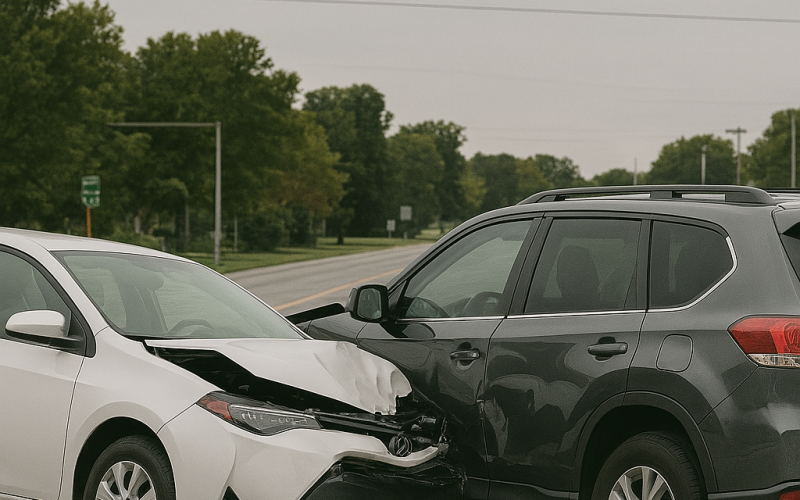When Does my Workers’ Comp Claim Need to be Filed?



Workers’ compensation benefits are in place to protect almost all workers in South Carolina. Unfortunately, far too many people procrastinate when filing workers’ compensation cases after a work-related injury because they think they have plenty of time. This leads to many injured workers having their claims denied by their employer’s insurance company when they miss an important deadline.
It is essential if you are an injured employee to file your workers’ compensation claim as soon as possible after your workplace injury. If you are not sure about the next steps to take, a qualified and experienced workers’ compensation lawyer can provide legal advice.
The workers’ compensation attorneys at HawkLaw, P.A. have helped thousands of victims of workplace accidents and work injury with their workers’ compensation claims, and we are ready to help walk you through South Carolina law. We keep everything streamlined so that you can dedicate more energy to your recovery. HawkLaw fight to win for our valued clients.
How Soon After an Accident Must I Report My Injury in South Carolina?
Under state law, you must report your job injuries to your employer within 90 days of the accident. It is, however, always a good idea to notify your employer in writing as soon as you possibly can. The sooner you report the accident, the better your rights will be protected. Failure to report within the 90-day window may disqualify you from receiving benefits. This is the first deadline it is imperative to meet when it comes to workers’ compensation insurance.
How Long Do I Have to File a Workers’ Comp Claim in South Carolina?
After filing your initial injury report, the statute of limitations gives you up to two years to file your workers’ comp claims. Your employer is technically supposed to file a claim with their insurance company and the South Carolina Workers’ Compensation Commission on your behalf. If, however, they fail to do so, it becomes your responsibility to make sure the claim is filed.
This can be where the process grows quite complicated, and it is ideal to contact an attorney who is well-versed in SC workers’ injury cases. Not every personal injury lawyer can handle these types of situations. If you are the victim of occupational disease or occupational illness, and you are afraid your employer has not filed a claim with the insurance company, contact HawkLaw as soon as possible.
Call us at 888-HAWKLAW or complete our online contact form to speak with a qualified workers’ comp attorney today. Be sure to ask if you qualify for a free consultation* (see our disclaimer at the bottom of the page for more information).
How Do I File a Workers’ Compensation Claim in South Carolina?
When you suffer a workplace accident, the first and most critical action to take is to report the injury in writing to your employer with all the details, including the nature of the injury, the time it happened, how it happened, and your contact information. After you do this, it is your employer’s responsibility to file the claim with the South Carolina Workers’ Compensation Commission.
Most employers in the state are required to maintain workers’ compensation insurance to cover these risks. After the employer files your claim, you should be contacted by the insurance carrier to complete the process. It is vital to remember, however, that the insurance company is not your ally. They are not there to represent your best interests or help you get fair compensation for the accident. It is their job to pay out the lowest possible claim they can. You always have the right to a workers’ comp lawyer by your side.
Workers’ compensation laws, however, do make it very clear that your employer is responsible for covering injuries caused by workplace accidents, and it is a no-fault system. This means it does not matter who caused the accident or whether it was a co-worker’s fault; it just matters that it happened during the normal course of your work.
There are limited exceptions to this rule. In some rare cases, if a third party is responsible and shows gross negligence, you may be able to file a personal injury claim against that person instead of a workers’ comp case. It is essential to have an attorney by your side in this case to advise you on which course of action is the best.
If your employer fails to file your claim, you can take action yourself. Filing for workers’ comp benefits in South Carolina requires you to submit Form 50 to the Workers’ Compensation Commission. If you do need to take action yourself, it becomes more important to have the help of a personal injury law firm experienced in workers’ compensation cases. Your lawyer can help you communicate the losses and impairment you have suffered through your work injury.
Those whose family members have died due to a work accident or illness may also be entitled to financial support in the form of death benefits. This requires filing Form 52, but always do this with the support of an attorney.
What Benefits Can I Receive Under South Carolina Workers’ Comp?
Work injuries enable you to get three types of benefits. The first benefit covers all of your medical expenses and medical treatment, including doctor’s office visits, medication, medical procedures like surgery and physical therapy, transportation to and from medical visits, and even the cost of any in-home care.
The second of these includes a portion of your lost wages, which is capped at a maximum amount that is adjusted annually. The amount available is equal to 66 2/3% of the employee’s average weekly wages before the injury, and the cap is the average weekly wage in the state for the preceding fiscal year. Compensation is available for 340 weeks from the date of injury if the disability is partial, and 500 weeks if the disability is total. This duration can change based on specific injuries, which your workers’ compensation attorney can help you to determine.
Finally, if your injury results in permanent disability, you are not subject to the 340- or 500-week limitation and may continue to receive benefits for life. Obtaining these benefits, however, can require challenging denials and proving your disability before the courts.
Can I Sue My Employer for Pain and Suffering?
Many injured workers want to know if they can file a personal injury suit against their employer. You cannot sue your employer for things like pain and suffering under workers’ comp law. In general, by accepting employment where you are covered by workers’ compensation, you forfeit your right to sue.
In some very rare cases, however, where your employer or another party shows truly gross negligence, a personal injury lawsuit may be possible. When this happens, it is often for things like a car accident that happens en route to a client meeting where a third party who is not a co-worker causes the incident. You will need the help of a personal injury attorney to pursue such a lawsuit.
What Happens If I Do Not File a Workers’ Comp Claim on Time in South Carolina?
According to state workers’ compensation laws, if you do not file your workers’ compensation claim within the stated two-year statute of limitations, you will lose the right to benefits. This is why it is so important to notify your employer right away and to pay close attention to whether or not you hear back from the insurance company.
If you do not hear back promptly, it becomes essential to file Form 50 and start your own claim with the help of an experienced lawyer. You could lose out on disability benefits, including a portion of your average weekly wage, medical bills and medical care, and even permanent disability if your accident leaves you permanently unable to work.
Who Files a Workers’ Comp Claim After a Wrongful Death?
If you lose a loved one due to work-related injuries, sometimes a workers’ comp claim can be filed by surviving relatives. This claim must be filed by the dependents of the worker. If the worker has no dependents, their parents may file a claim. The statute of limitations for the claim is two years from the date of death.
Exceptions to Filing Deadline Rules
The state does allow for certain exceptions or tolling of the statute of limitations on filing for a workers’ comp claim. These include repetitive trauma injuries that require you to report within 90 days of discovering your repetitive trauma. Occupational disease claims, likewise, must be reported within 90 days of discovering the injury. Both of these types of workplace injuries can take quite some time to present symptoms, which is why the statute of limitations is extended for both.
If a worker is under the age of 18, the legal age of adulthood in South Carolina, the statute of limitations is postponed until the worker turns 18. At this point, the clock starts ticking. Every case is unique in these situations, so it is important to contact a workers’ comp attorney.
Those who suffer from a mental or cognitive disability may see the deadline extended until their disability is lifted or until they pass away.
Finally, if you have received benefits and your condition worsens after medical treatments stop, you have one year from the last benefit to file a new claim.
How Do I Fight a Workers’ Comp Denial in South Carolina?
Workers’ compensation claims are unfortunately denied every day in South Carolina, even when they are completely warranted. This is because insurance companies actively look for reasons to deny claims. Insurance companies are for-profit businesses, and they do not profit by paying out huge claims. They use many excuses to deny claims, including accusing you of trying to get benefits for preexisting injuries, claiming you are not as hurt as you say you are, saying that your injury was not part of your normal work duties, and other excuses.
If your claim is denied, you can file an appeal, but to do so it is a good idea to have an attorney in your corner. You must first submit a hearing request to the Workers’ Compensation Commission. A single commissioner will hear your appeal in the county where the injury occurred. You will not have to travel to Columbia in Richland County, where the commission is located, if you are in a different city such as Charleston.
The commission may, in some cases, require you to see a doctor they select. The doctor will then testify about your medical condition at the hearing. You will also get to testify. This is important because the doctor will be instructed to find a reason why you are healthy enough to be denied a claim. The commission will then issue a decision.
If you disagree with the commission’s order, you can petition for a further review where a panel of three commissioners will hold a further hearing, then issue a decision called an award. After this, if you still disagree, your case can proceed through the South Carolina Court of Appeals and all the way to the state Supreme Court.
Do You Need Help Filing a South Carolina Workers’ Compensation Claim?
HawkLaw is ready to help you fight your battle for workers’ compensation. We put our client relationship ahead of all other concerns. We are here to represent you, fight for your rights, and be a caring ally when you need one the most. Contact us today at 888-HAWKLAW or through our online form, and our experienced legal team will provide a free case review.*
John D. Hawkins
John Hawkins is the Founder and CEO of HawkLaw He has been licensed to practice law in South Carolina since his graduation with honors in 1994 from the University of South Carolina School of Law, where he was on the Law Review and Order of Wig and Robe.
-
$3,000,000*SettlementTrucking Accident
-
$1,005,000*SettlementCar Accident
-
$575,000*SettlementPersonal Injury
"*" indicates required fields









